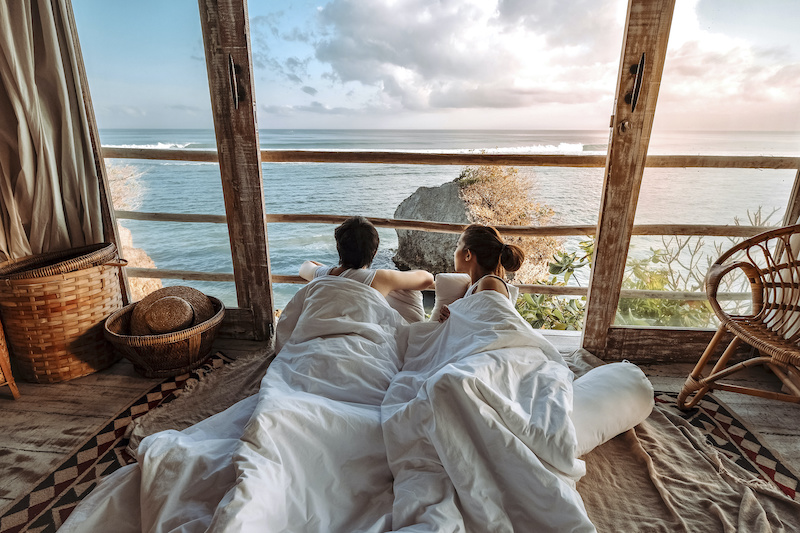Bali, Indonesia Sentinel — In a world where stress and busy schedules dominate, a new form of travel has emerged: sleep tourism. Predicted to be one of the most sought-after travel experiences in 2025, this trend emphasizes rest, relaxation, and improved sleep quality. For many, traditional vacations filled with packed itineraries no longer appeal as much as serene getaways designed to refresh the body and mind.
What Is Sleep Tourism?

Sleep tourism is the act of traveling specifically to improve sleep quality. Unlike conventional vacations that focus on exploration and sightseeing, this trend prioritizes creating an environment where guests can experience restorative sleep. The idea is to treat travel destinations as a “new home,” where individuals can unwind, free from the stresses of daily life.
“Simplified, sleep tourism is about visiting a location and returning home feeling refreshed and recharged,” says Sahara Rose de Vore, founder of The Travel Coach Network.
Luxury hotels like Rome Cavalieri and Conrad Bali have embraced this trend by curating experiences aimed at enhancing relaxation and sleep. These destinations offer amenities such as soundproof rooms, aromatherapy, curated bedding, and calming environments to ensure guests have a tranquil stay.
Why Is Sleep Tourism Gaining Popularity?
Sleep is a fundamental human need, yet many people struggle to get enough of it. Insomnia, anxiety, and stress are common culprits that disrupt rest. Sleep tourism caters to these challenges by offering specialized programs designed to help guests relax and reset.
Stephanie Davis, a luxury travel planner, explains that this type of travel is especially beneficial for individuals dealing with sleep issues or heightened anxiety. By staying in tranquil environments, guests can disconnect from daily pressures and focus on their well-being.
A 2024 Hilton Trends Report highlights that one of the primary reasons travelers opt for sleep-focused vacations is to rest and recharge. This marks a noticeable shift in how people approach travel. Rather than seeking out action-packed itineraries, they are prioritizing trips that promote overall wellness.
Destinations and Experiences
Popular sleep tourism destinations like Rome Cavalieri and Conrad Bali provide holistic sleep-enhancing experiences. Guests can expect features like personalized sleep programs, blackout curtains, sound machines, and yoga sessions designed to reduce stress before bed.
For those who wish to combine rest with exploration, these destinations also incorporate wellness activities such as nature walks, spa treatments, and meditation sessions, which contribute to better sleep and improved mental clarity.
Read Also:
Bali Melukat: Sacred Purification Ritual for Mental and Spiritual Cleansing
A Shift in Travel Priorities
Sleep tourism reflects a growing awareness of the importance of mental health and relaxation in travel. Traditional vacations packed with sightseeing are losing favor as more travelers seek transformative experiences that focus on well-being.
“Travelers now want meaningful, restful journeys that allow them to embrace the true potential of travel,” says de Vore.
As this trend continues to rise, it is clear that sleep tourism represents a shift toward prioritizing personal health and wellness. Whether for insomniacs, busy professionals, or anyone needing a break, these restful getaways provide a new way to experience travel—by returning home recharged, refreshed, and ready to face the world.
For 2025 and beyond, sleep tourism may redefine vacations, proving that sometimes, the best journey is the one that lets you truly rest.
(Becky)
























